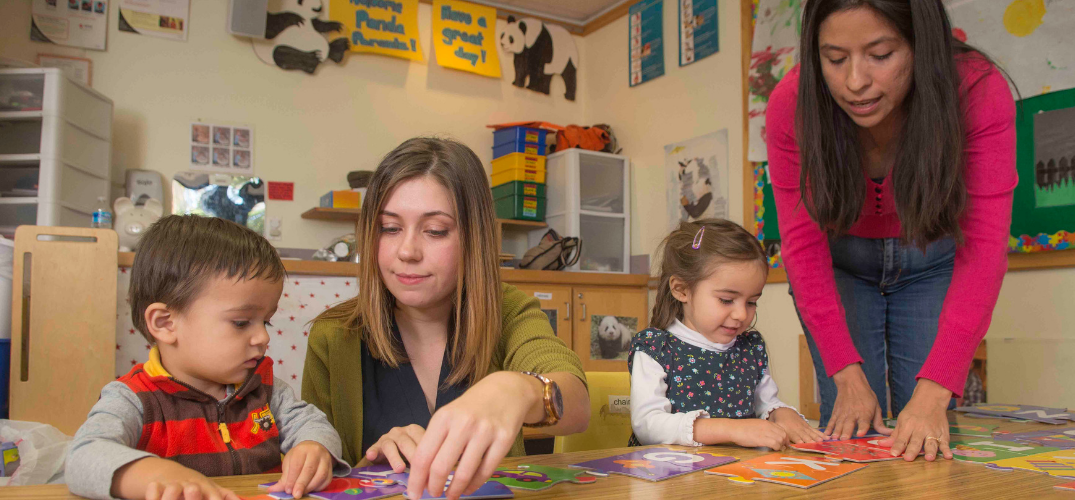 Stress is a part of our everyday lives: struggling with your four-year-old over breakfast food, having the car overheat in traffic, running late to pick up at the child care center, confronting family members about chores and household responsibilities.
Stress is a part of our everyday lives: struggling with your four-year-old over breakfast food, having the car overheat in traffic, running late to pick up at the child care center, confronting family members about chores and household responsibilities.
Sometimes the accumulation of stresses can result in your losing your temper. All too often it is children who receive the outburst. For some families, this is an isolated flare-up and everyone recovers and moves on. For others, explosions become more frequent and can result in problematic behaviors in their children.
Once you've lost your temper with your child, it can be easy to lose it again. The more you learn about stress and ways to manage your anger, the better prepared you will be.
The Daily Routine
For many households, just the daily rituals and routines create tremendous stress. Often the areas of conflict are around chores, homework, meals, sibling relationships, and bedtime. A good starting point is to decide which behaviors are most difficult for you and then develop a list of rules and appropriate consequences to address them. Make the rules clear and enforce them consistently.
It is helpful to redefine what is most important to you and then prioritize. For example, if getting out of the house on time in the morning is most important, then maybe the beds will not always be made. Planning ahead is valuable and you can often turn routine chores into more meaningful time. Choosing clothes the night before with your child can allow you to giggle together over clothes that don't match instead of heading for a disagreement in the morning.
You are more likely to lose your temper when you are tired or overworked. Try to be aware of your limits and recognize when you begin to feel overwhelmed. Before you head for home, take a break, go for a quick walk or plan an event to look forward to. Talk to friends, family and your child care provider to let them know how you feel. They may help you sort through your feelings and maybe they can give you some time for yourself.
Ages and Stages
The first step for every parent is to identify the feeling you are having as anger. In some situations, an understanding of your child's developmental stage can help you avoid getting angry with your child. Hearing your infant cry for long periods of time can make you feel angry with your child, but the anger is actually due to feelings of frustration and inadequacy at not knowing how to comfort your baby. A direct expression of anger towards your baby will not be helpful. Similarly, your preschooler didn't purposefully break the plate and your twelve-year-old didn't deliberately forget his jacket at school. Most of your anger is with yourself at not being able to control the situation.
Not all anger is considered bad if it is used constructively to change things you don't like. With children who are preschool age and older you can talk afterwards, exchange an apology and acknowledge there will always be arguments. There may be better ways to work things out or you might step back later and see a bit of humor in an argument. Start a pattern in your family of always talking things over after the heat of the moment is past.
If you are no longer focusing your attention on the problem at hand, your anger has taken over. Separate out other issues, previous conflicts with your child, and the accumulated stress of your day and focus only on the present situation. As soon as you feel your anger is inappropriate or no longer productive, you should walk away. It may be best to go into another room to cool off for awhile or call on your networks to get some time for yourself.
Holidays
For many families the joys of the holidays are mixed with the strains of visiting relatives, shopping, the change of family routines, travel and unsolicited advice. It can be difficult to keep the spirit of the season when there are so many changes to adjust to. After the initial excitement, the strain usually starts to show. No matter how much you try or plan ahead, there are bound to be moments that are very frustrating, embarrassing or completely unexpected. To ease the stress, here are a few suggestions to keep in mind.
Talk ahead of time with your friends and relatives to find out exactly what is planned. You can determine what special arrangements or foods will be needed. If you will be traveling, pack the essentials along with favorite lovies and some familiar snacks to help your child handle delayed meals. Ask ahead for help in meeting the needs of your child in a place away from home and once there, relax your rules and restrictions. For a temporary situation it's fine for your child to stay up later or have an extra treat. Above all, maintain your sense of humor to keep the holidays fun.
Coping Strategies
- Simplify whenever possible. To help plan for the morning rush, have clothes laid out, lunches packed and shoes located the night before.
- Be ready to be flexible. You can't prepare for everything and there are bound to be conflicts along the way. If your child insists on the plaid shirt with the striped shorts, avoid an argument and let it go. Ask yourself if it will really matter a week from now.
- Remember all children go through ages and stages. Before you get angry, remind yourself that you can expect typical behavior patterns as your child grows.
- Talk to your child care provider and let her know when you feel stressed or angry. She may have suggestions for you to help minimize your frustrations.
- As soon as you feel your anger is not appropriate, walk away and reach out to others for support.
- Try using humor to gain compliance. You might challenge your child who is always running late in the morning to a race to see who is ready first and out the door on time.
The Daily Parent is prepared by NACCRRA, the National Association of Child Care Resource and Referral Agencies.
© 2012 NACCRRA. All rights reserved.





